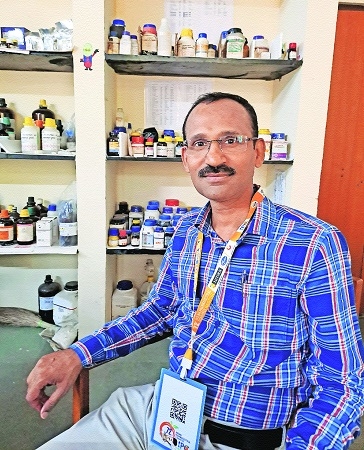‘There is Science behind gut feeling’
| Date :22-Jan-2023 |

Dr Amul Sakharkar
By Kartik Lokhande :
People often use the expression ‘gut feeling’ to convey intuition. However, little do they realise that there is Science behind this expression. For, they are not aware of the connection between gut and brain with an important role played by microbes in the gut. As one speaks to Dr Amul Sakharkar, Assistant Professor (UGC-FRP), Department of Biotechnology, Savitribai Phule Pune University, one finds that the expression ‘gut feeling’ has a wider scientific explanation. “Human body has around 3 trillion microbes, 99 per cent of which are in gut. These gut microbes have evolved with humans and other life-forms. Usually, these are called ‘good bacteria’.
More than our cells, these microbes help us in digestion. However, there are diet-induced and region-induced differences in microbiome, which indicates the world of microbes that are helpful as well as potentially harmful,” said Dr Sakharkar, while interacting with ‘The Hitavada’ at his alma-mater , RTMNU. Associated with the Indian gut bacteria’s research characterisation, Dr Sakharkar elaborated that microbes impacted biological constitution of humans. According to him, there is ‘gut-microbiome-brain axis’. “So, what one eats may decide which kind of bacteria (good or bad) dominate one’s gut. The gut microbiome can impact neuro-biology of humans. Similarly, psychological changes can affect composition of microbiome,” he said. These days, people are moving away from traditional food habits and are consuming food laced with preservatives and additives. This is affecting gut microbiome, which is ultimately affecting human brain and thus human behaviour. Dr Sakharkar underlined the need for integration of Indian traditional wisdom with modern science to study diversity of culture, diet, and climate so that correlation of health of gut microbes with human behaviour could be understood better. “Eat what your forefathers ate, and have sound mind--body-soul health,” Dr Sakharkar concluded.